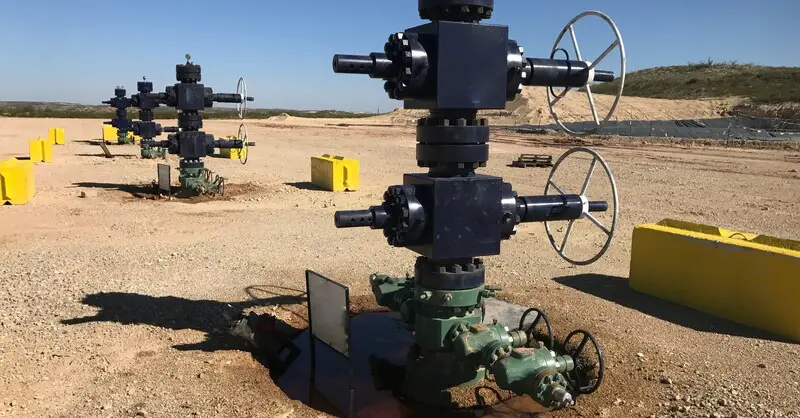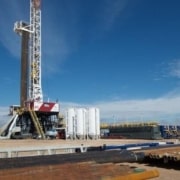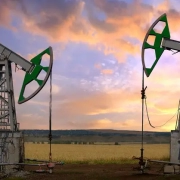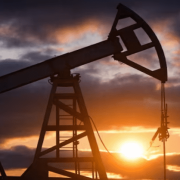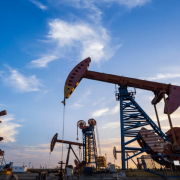The information provided on this page is for general informational purposes only and does not constitute legal, financial, or investment advice. Oil and gas laws, mineral rights regulations, and royalty structures vary significantly by state and jurisdiction. While we strive to provide accurate and up-to-date information, no guarantee is made to that effect, and laws may have changed since publication.
You should consult with a licensed attorney specializing in oil and gas law in your jurisdiction, a qualified financial advisor, or other appropriate professionals before making any decisions based on this material. Neither the author nor the publisher assumes any liability for actions taken in reliance upon the information contained herein.
The oil and gas industry is a crucial driver of the global economy, providing energy resources that power homes, businesses, and transportation. This industry’s backbone is the process of leasing land for exploration and production, which is a complex and highly regulated endeavor. Oil and gas leasing comes with a unique set of challenges and regulations that impact everyone involved, from landowners to energy companies. In this comprehensive guide, we will explore the challenges and regulations associated with oil and gas leasing, shedding light on the intricacies of this vital sector.
The oil and gas industry is marked by its intricate web of exploration, drilling, extraction, and production activities. One of the foundational steps in this process is leasing the land for these operations. Oil and gas leasing agreements can be lucrative for landowners and energy companies, but they also present a range of challenges, from environmental concerns to regulatory complexities.
Understanding the multifaceted landscape of oil and gas leasing is essential for landowners, energy companies, and policymakers. In this guide, we will delve into the basics of oil and gas leasing, the challenges that arise, and the regulatory framework governing this industry.
The Basics of Oil and Gas Leasing
Oil and gas leasing involves a landowner granting the right to explore, extract, and produce oil and gas resources from their property to an energy company. The lease agreement outlines the terms, including compensation, duration, and the specific activities permitted on the land.
Landowners benefit from oil and gas leasing through lease payments, royalties on production, and potential increases in property value. Energy companies gain access to valuable resources that drive their operations and contribute to energy supply.
Challenges in Oil and Gas Leasing
Navigating the oil and gas leasing landscape is fraught with challenges. Understanding these challenges is crucial for all stakeholders involved:
Environmental Concerns and Regulations
The environmental impact of oil and gas operations is a major concern. Drilling and extraction can lead to soil and water contamination, habitat disruption, and air pollution. Regulations aim to mitigate these impacts, but they can also significantly increase operating costs and project timelines.
Community Opposition
Local communities often express strong opposition to oil and gas projects, citing concerns about noise, air quality, water contamination, and property values. Protests, legal challenges, and public relations issues can delay or halt operations.
Market Volatility and Price Fluctuations
The oil and gas industry is highly sensitive to market fluctuations. Energy prices can plummet due to global events, leading to financial strain for energy companies and reduced royalty income for landowners.
Complex Legal Framework
Oil and gas leasing agreements are legally intricate, requiring expertise to navigate. Landowners and energy companies must ensure that contracts comply with federal, state, and local laws, as well as environmental regulations.
Geopolitical Risks
The oil and gas industry is influenced by geopolitical dynamics, including trade disputes, sanctions, and international conflicts. These factors can disrupt supply chains and affect market stability.
Regulations Governing Oil and Gas Leasing
Regulations are essential to balance the interests of landowners, energy companies, and the environment. These regulations can vary significantly depending on the location of the leased land, but there are common themes that emerge:
Federal Regulations in the United States
In the United States, the federal government oversees offshore oil and gas leasing through agencies like the Bureau of Ocean Energy Management (BOEM) and the Bureau of Safety and Environmental Enforcement (BSEE). Onshore leasing, however, is primarily regulated at the state level, with oversight from the Department of the Interior.
- National Environmental Policy Act (NEPA): NEPA mandates environmental impact assessments for federal projects, including offshore oil and gas leases. It requires the government to consider environmental consequences before approving leases.
- Clean Air Act (CAA) and Clean Water Act (CWA): These federal acts set air and water quality standards, which apply to oil and gas operations. Permits are required to ensure compliance.
- Endangered Species Act (ESA): The ESA protects endangered species and their habitats, and oil and gas projects must undergo consultation to avoid harm to listed species.
State Regulations
States play a significant role in regulating onshore oil and gas leasing. Each state has its own regulatory framework, which can include rules for well spacing, drilling permits, and environmental protection. State agencies oversee operations and compliance.
- Colorado’s Oil and Gas Conservation Commission (COGCC): This state agency regulates oil and gas operations, setting rules for drilling, permitting, and environmental protections.
- Texas Railroad Commission: In Texas, the Railroad Commission oversees the oil and gas industry, including permitting, well spacing, and safety regulations.
International Regulations
Oil and gas leasing in international waters is subject to international treaties and agreements. The United Nations Convention on the Law of the Sea (UNCLOS) governs offshore mineral rights and boundaries in international waters. Nations with coastlines bordering international waters have rights and responsibilities related to resource exploration and environmental protection.
Best Practices for Navigating Oil and Gas Leasing Challenges
Navigating the challenges and regulations in oil and gas leasing requires strategic planning and responsible practices. Here are some best practices for all stakeholders:
- Comprehensive Due Diligence: Before entering into a lease agreement, conduct thorough due diligence. Understand the potential environmental impact and regulatory requirements.
- Engage with the Community: Energy companies should actively engage with local communities to address concerns and build trust. Transparency and dialogue can help mitigate opposition.
- Environmental Responsibility: Prioritize environmental stewardship and employ technologies and practices to reduce the environmental impact of operations.
- Legal Expertise: Landowners and energy companies should work with legal experts who specialize in oil and gas leasing. Legal guidance is essential for contract negotiation and compliance.
- Market Risk Mitigation: Energy companies should establish financial strategies to mitigate market volatility, such as hedging against price fluctuations.
- Global Risk Assessment: For international operations, consider geopolitical risks and have contingency plans in place to address disruptions.
Oil and gas leasing is a critical aspect of the energy industry, but it is a multifaceted landscape marked by challenges and stringent regulations. Navigating these complexities requires a deep understanding of environmental concerns, community dynamics, market volatility, legal intricacies, and geopolitical risks.
For landowners, energy companies, and policymakers, striking a balance between economic benefits and environmental responsibility is essential. By adhering to best practices and staying informed about the evolving regulatory landscape, stakeholders can contribute to a sustainable and prosperous future for the oil and gas industry.
If you have further questions related to the [insert target keyword] topic, feel free to reach out to us here.

